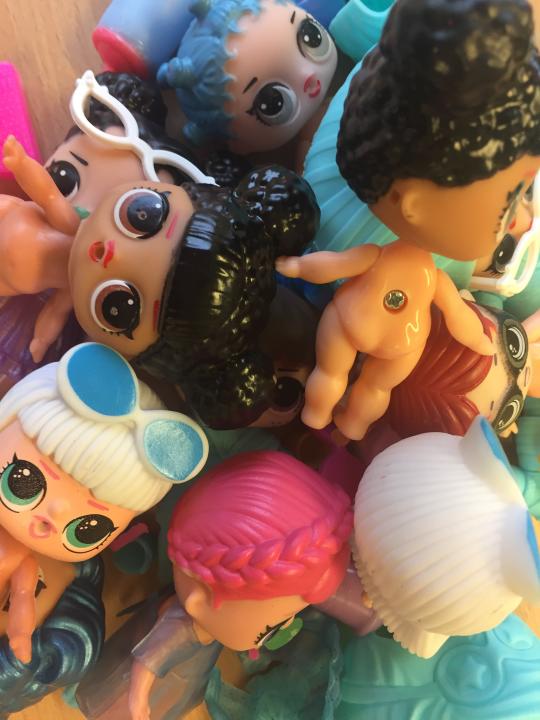Christmas shoppers warned to avoid buying dangerous 'fake toys'

Christmas shoppers are being warned to avoid buying fake and potentially dangerous toys that can contain toxic materials, damage hearing, and pose choking or strangulation hazards.
The Local Government Association (LGA), which represents councils in England and Wales, is urging people to look out for tell-tale signs of counterfeit and unsafe products following recent seizures of harmful toys in the run-up to the festive season.
It is also urging people to be wary of turning to suspect online sellers offering next day delivery to get hold of in-demand toys that are out of stock elsewhere, as they may not actually exist, leaving them out of pocket.
READ MORE: Major movies expected to drive toy sales this Christmas as ‘dream list’ revealed
Recent toys seized by councils’ trading standards teams include more than 54,000 teddy bears which posed a choking hazard, electric scooters with no safety documentation, and audio items that exceeded legal decibel limits for toys which could damage a child’s hearing.
Counterfeit versions of popular toys – such as L.O.L Surprise! Dolls, which were described as last year’s “must-have” Christmas toy – have been found to contain phthalates, a chemical which can damage the liver, kidneys, lungs, and reproductive system.
READ MORE: Argos reveals 12 must-have toys for Christmas 2019
The LGA is urging shoppers to look for the authentic CE mark on toys or their packaging which confirms they meet consumer safety standards. With people increasingly buying presents online, the LGA is also calling for the CE mark to be clearly included in the information on websites offering toys for sale.
Latest industry figures show that more than 4.2 million counterfeit products, including toys worth £21m, were seized by councils in 2018/19.
The LGA is warning that fake and potentially dangerous toys typically flood the market around Christmas as criminals exploit a surge in demand for sold-out items.
READ MORE: Hamleys reveals top toys for Christmas
Councillor Simon Blackburn, chair of the LGA’s Safer and Stronger Communities Board, said: "Christmas is a hotbed for criminals who put profit before safety by selling dangerous, counterfeit toys at cheap prices to unsuspecting shoppers.
“Bargain hunters need to be aware that fake, substandard toys can break and cause injuries or pose choking hazards, toxic materials can cause burns and serious harm, while illegal electrical toys can lead to fires or electrocution.
“It’s not unusual for rogue sellers to cash in on desperate shoppers by selling fake versions of ‘must-have’ toys sold out in well-known retailers, or claim to have them in stock on their website when they actually don’t exist.
READ MORE: Tesco's top 10 Christmas toys
He added: "Not only is selling fake toys a crime, it harms and ruins the reputation of genuine traders, costs the economy millions in lost tax revenue and often funds organised crime.”
To help avoid buying fake and dangerous toys, shoppers should check toys have an authentic CE mark which shows they comply with safety regulations, look out for grammar and spelling errors on packaging, buy from well-known and reputable outlets, and resist cheap offers that look too good to be true, Blackburn advised.

 Yahoo Finance
Yahoo Finance 